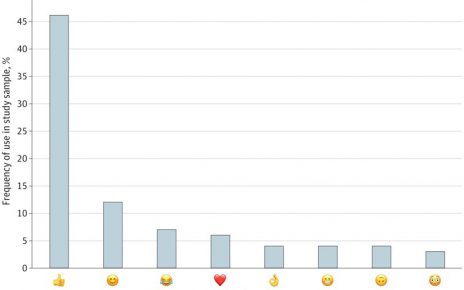
Dr Rebecca M. Puhl
Although there are currently no national laws anywhere against weight-based discrimination or bullying, a survey of people engaged in weight management in six Western countries has found strong support for such laws and policies.
Researchers surveyed adults enrolled in WW International (formerly Weight Watchers) in Australia, Canada, France, Germany, UK, and the United States.
“Across countries, support was high for laws (90%) and policies (92%) to address weight-based bullying, whereas greater between-country variation emerged in support for legislation to address weight-based discrimination in employment (61%, 79%), as a human rights issue (57%), and through existing disability protections (47%),” Rebecca M. Puhl, PhD, and colleagues summarize.
The study was one of five presented during an Obesity journal symposium at ObesityWeek® 2021 and published in the November issue of the journal.
“Although legal systems vary from country to country, our findings offer a starting point for cross-country consensus building among policymakers and the sharing of knowledge and experience in antidiscrimination initiatives,” Puhl, deputy director, Rudd Center for Food Policy & Obesity, and professor, University of Connecticut, in Hartford, told Medscape Medical News in an email.
“Our findings can also inform policymakers of what types of antidiscrimination policies may be more likely to garner public support,” she continued.
“We are trying to shift societal attitudes,” Puhl said during a Q&A session after her talk. “I do see this as needle-moving.”
Achieving this shift, she elaborated, will require “changing harmful narratives about body weight promoted in the mass media, challenging harmful ideals of thinness, educating the public about the complex causes of obesity, and treating weight discrimination as a legitimate form of social injustice.”
Importantly, “healthcare professionals are not immune to societal weight bias,” Puhl stressed. “We need to ensure that people of all body sizes are supported and treated with compassion and respect in their healthcare experiences.”
Curriculums in medical schools “rarely (if ever) address this topic,” she noted.
Invited to comment, Amy E. Rothberg, MD, who was not involved with the research, said that despite certain study limitations, such as representing the opinions of a minority of people participating in a weight-management program (who were almost all White women), “it is important to recognize that there was nearly unanimous support in favor of policies protecting youth against bullying in schools.”
The study also highlights “the need to be thoughtful in our actions and language, advocate as we would for vulnerable populations, and identify realistic, feasible, and effective measures to prevent and protect those facing potential or real discrimination,” added Rothberg, an endocrinologist and professor at the University of Michigan, in Ann Arbor.
“However, more research is needed, particularly among those from…non-Westernized countries,” she said, something the authors say they agree with.
Public Support Increasing
No country has enacted federal laws to prohibit weight discrimination, Ruhl and colleagues write, although the state of Michigan and the city of Reykjavik, in Iceland, have enacted such legislation.
Michigan passed the Elliott Larsen Civil Rights Act in 1976, Puhl elaborated, which added body weight as a protected characteristic in its civil rights statute, alongside already protected characteristics such as sex and race. Reykjavik added body weight to its human rights code in 2016.
Meanwhile, up to 40% of Americans report experiencing weight-based stigma and/or discrimination. Prior national studies have reported increasing public support in 2010-2015 for laws against weight-based discrimination in the United States.
Puhl co-authored a 2020 international consensus statement calling for an end to weight-related stigma.
Study Findings
Researchers aimed to determine support for policies and laws against weight-based discrimination and bullying in their recent six-country questionnaire.
As previously reported, the researchers published two articles, one in the International Journal of Obesity and the other in PLoS One, about weight stigma based on data from the online survey conducted from March to July 2020.
They had invited adult members of WW International in the six countries to reply to a survey about body weight and health, and 23,415 members (3.8%-5.9% of those invited) replied.
Respondents were ineligible for the study if they had completed less than half of the survey, did not consent, were under 18 years old, or had not been a member of WW for at least 3 months.
This left 13,996 participants, roughly 1200 from Australia and 2500 from each of the other five countries.
Most participants were women (94%-97%) and White (91%-97%). They were a mean age of 47-57 years and had a mean body mass index (BMI) of 29.3-31.1 kg/m2. Overall, most had a mean BMI ≥ 30 kg/m2 (45%) or 25-29.9 kg/m2 (36%).
More than half had experienced weight stigma (56%-61%).
Participant agreement with the following six statements was as follows:
-
“My country should include body weight in our civil/human rights laws in order to protect people from discrimination based on their body weight”: 57% agreed; from 38% in Germany to 67% in Canada.
-
“Obesity should be considered a disability so that people will be protected from weight discrimination in the workplace”: 47% agreed; from 34% in Germany to 67% in France.
-
“The government should pass the ‘Weight Discrimination in Employment Act’ to protect employees from discrimination in the workplace based on their body weight”: 61% agreed; from 47% in Germany to 69% in Canada.
-
“It should be illegal for an employer to refuse to hire a qualified person because of his or her body weight”: 79% agreed; from 74% in Australia to 89% in Canada.
-
“Schools should implement antibullying policies that protect students from being bullied about their weight”: 92% agreed; from 90% in Germany to 94% in Canada.
-
“Existing antibullying laws should include protections against weight-based bullying”: 90% agreed; from 83% in Germany to 93% in Canada.
Compared with the overall average support, backing for each statement was consistently lower in Germany and higher in Canada and France.
In the United States, people who had experienced stigma were more likely to support the introduction of antibullying policies, whereas in the other countries, support for this was independent of having experienced stigma.
The study was funded by a grant from WW International to Puhl. One author has served as a consultant for and received grants from WW International outside the study; two authors are WW International employees and shareholders. Rothberg has reported no relevant financial disclosures.
ObesityWeek® 2021. Presented November 4, 2021.
Obesity. 2021;29:1787-1798. Full text
For more diabetes and endocrinology news, follow us on Twitter and Facebook.
Source: Read Full Article



